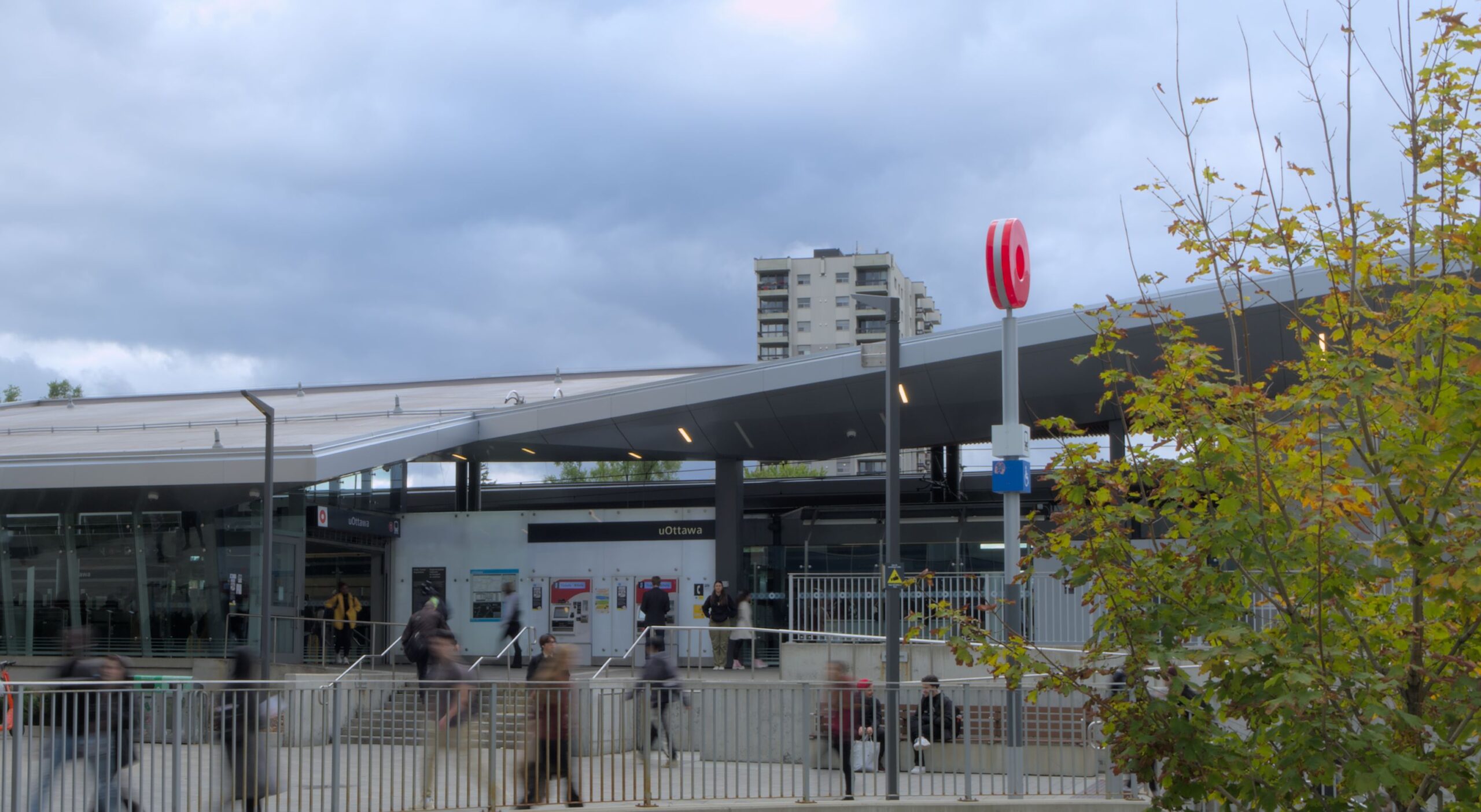REDUCTION OF SERVICE LEAVES STUDENTS FEELING NEGLECTED
Ottawa city councillor for Kitchissippi Ward Jeff Leiper tabled a motion to restore O-Train Line 1 service from 10 minutes between trains back to five minutes at a city council transit commission meeting last Thursday. The motion is set to be voted on at the city council meeting on Wednesday.
OC Transpo’s midday service cuts began Aug. 26. Previously, trains ran on five minute intervals between 6:30 a.m. and 6:30 p.m., but since Aug. 26, OC Transpo has only maintained the five minute intervals for ‘rush hour’ commuters, and reduced service between 9 a.m. and 3 p.m. to every 10 minutes.
The reduction of service is expected to save $600,000 between September and December of this year and $1.6 million annually.
OC Transpo general manager, Renée Amilcar, stated during the transit commission meeting that “[OC Transpo] is looking for money” mentioning how “every penny counts.”
Currently, the organization is running $25 million short for their 2024 budget, with an estimated shortfall of $120 million for 2025.
During the six-hour-long meeting, city councilors and OC Transpo representatives heard over thirty testimonies on the impact of unreliable transit, from members of the Ottawa Community – including University of Ottawa’s Student Union (UOSU) president Delphine Robitaille.
Robitaille stated, “I’ve witnessed the levels of student dissatisfaction with OC Transpo skyrocket to the point where I am now concerned for the future of the relationship between our two institutions”.
Post-secondary institutions across Ottawa are partnered with OC Transpo through the U-Pass program, giving full-time students unlimited transit access at a reduced cost, while generating $19 million in revenue annually.
As UOSU was neglected during transit planning, Robitaille highlighted “my worries of the possibility of a student referendum to do away with the U-Pass”, citing the LRT’s inability to accommodate the student population. Robitaille connected the absence of student input to “double the wait times” and transit needs outside of non-traditional rush hours as classes, as classes on campus conclude anytime from 9:50 a.m. to 10 p.m.
Testimonies presented to the public transit council included other members of the U of O community, including first-year political science student Cédrik Desjardins. “I am lucky to be in residence,” said Desjardins, “[the current transit system] is hurting those who have no choice but to use it.” Desjardins resides at the Friel Residence.
To reduce operating costs, OC Transpo has been running a ‘fare blitz’ to try and gather data concerning fare evasion. For the whole month of September, 12 fare inspectors will be working across line 1 issuing $260 tickets to bus and train users with unpaid fares.
OC Transpo told the transit commission that within the first four days of the campaign, just under 200 tickets were issued with hopes of gathering information on fare evader tendencies.
Once the information is gathered, fare inspectors are to be placed at evader hot spots. OC Transpo plans to keep issuing tickets in order to help solve budgetary issues throughout various ways.
When asked about possible fare increases, specifically to the U-Pass program, Amilcar told the Fulcrum “It’s not possible to say” and that a budget including these possible changes will be presented to the council in November.






